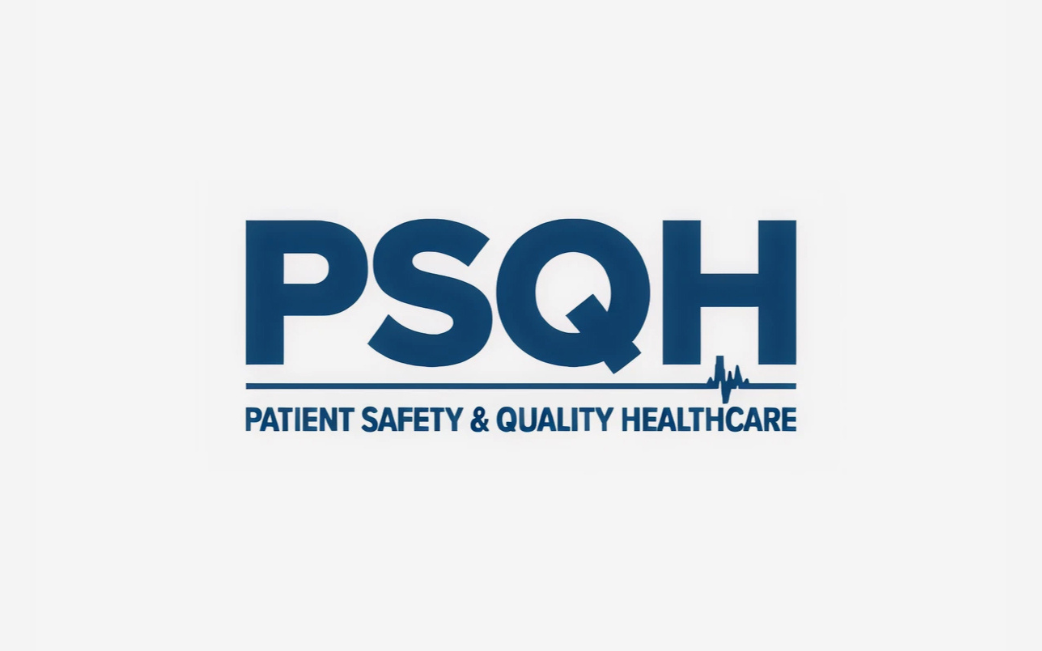Healthcare IT News highlights how Discovery Behavioral Health is advancing patient care and operational efficiency through post-discharge engagement powered by AI. By implementing a white-labeled version of Videra Health’s video-based assessment platform, Discovery extended support beyond the walls of its facilities—gaining real-time insights into patient recovery and unlocking new opportunities for early intervention and re-engagement. This proactive, tech-enabled approach exemplifies the shift toward continuous, personalized care across the behavioral health spectrum. With measurable improvements in patient outcomes and provider efficiency, the article shows how innovation can meaningfully transform the recovery journey.
Read the full article here.
Managing Stress in the Digital Age: Practical Tools for Behavioral Health Clinics
AI in Clinical Trials: Moving Beyond Traditional Endpoints in Bipolar Disorder Research
Patient Safety & Quality Healthcare (PSQH): Revolutionizing Mental Healthcare Through AI-Enhanced Provider-Patient Relationships
In a recent feature for Patient Safety and Quality Healthcare (PSQH), our CEO Loren Larsen emphasized the transformative role of AI in improving mental health provider-patient relationships.
The mental health sector is overwhelmed by increasing demand, paired with significant shortages in clinical staff. Traditional care models are not equipped to handle the need for more frequent monitoring between in-person sessions.
This article delves into how AI and video technology can revolutionize mental healthcare:
- AI-assisted screenings: Automate and enhance the accuracy of assessments.
- Video-based evaluations: Offer real-time insights into patient mental health.
- Continuous patient monitoring: Leverage AI to analyze emotional and behavioral changes over time.
This AI-driven approach enables providers to:
- Deliver more personalized care.
- Identify high-risk patients earlier.
- Enhance patient outcomes with timely interventions.
Read the full article here.
Patient Safety & Quality Healthcare (PSQH): The Importance of Between-Visits Appointments and Mental Health
In a recent feature for Patient Safety and Quality Healthcare (PSQH), our CEO Loren Larsen highlighted the significance of in-between appointments and their impact on mental health.
The US faces a mental health crisis with surging demand and limited access to care. Traditional models struggle with long wait times and a lack of monitoring between appointments.
This article explores how telehealth and AI can bridge the gap:
- Remote video appointments: Increased accessibility and reduced no-shows.
- Patient-recorded videos: Capture mental health episodes and track progress.
- AI analysis: Analyze video/audio to identify urgent cases and prioritize care.
This hybrid clinician/AI approach has the potential to:
- Reduce strain on mental healthcare systems.
- Meet patient needs more effectively between appointments.
- Offer earlier intervention and improved outcomes.
Read the full article here.
The Power of Listening: How AI Assessments Capture the Patient Voice and Transform Care Management
Traditionally, care management relies heavily on questionnaires and standardized assessments. While these tools provide valuable information, they often miss the richness of the patient experience, especially in mental health. Subtle cues in a patient’s voice, facial expressions, and body language can offer deeper insights into their well-being, which can be missed by traditional methods.
The Power of AI in Capturing the Patient Voice and Monitoring Progress
Mental Health Screening and Beyond: As a healthcare professional, I’ve often heard the sentiment: “If I could just see the patient for a few seconds, I’d get a much better sense of how they’re doing.” Traditional methods can lack nuance, relying solely on self-reported information.
This is where AI-powered video, text, and audio assessments excel. Mental health screening platforms leverage AI to capture the patient in ways that go beyond what traditional methods can achieve, providing a more accurate picture of a patient’s well-being. But the power of AI extends past the initial screening.
These assessments can be used for ongoing monitoring throughout a patient’s care journey. Patients can share their experiences in their own words, from the comfort of their own environment, during regular check-ins or engage using an AI-powered virtual support agent. These tools eliminate potential bias or apprehension that might arise in face-to-face interactions and provide a wealth of data for ongoing monitoring.
According to a recent study conducted by Videra Health with Serious Mental Illness (SMI) patients, 90% of those surveyed expressed a desire to use the Videra Health app/platform on a monthly basis for monitoring their mental health condition. This high percentage was consistent across all levels of depression severity. Additionally, 95% of the patients reported having a positive experience while using the platform.
Furthermore, in the same study, 32 providers were also surveyed about their willingness to use an app/platform for monitoring their patients’ mental health. An overwhelming 92% expressed interest in learning about the severity of their patients’ symptoms through the platform, while 96% liked the convenience, timeliness, and access to screening that it provided.
In essence, AI can act as your virtual eyes and ears, offering those crucial “20 seconds” to gauge a patient’s emotional state and overall well-being. This empowers you to intervene early, personalize treatment plans, and ultimately deliver better care to your patients.
Transforming Care Management with Continuous Monitoring
By capturing the patient voice and analyzing these nonverbal cues during ongoing check-ins, AI assessments offer significant benefits for care management across all healthcare organizations, including behavioral health centers:
- Improved Patient Engagement and Adherence: The ability to share their experiences in their own words empowers patients and fosters a more collaborative relationship with their care team and build trusts. Regular check-ins using AI can also help with adherence to treatment plans.
- Early Detection of Changes and Relapses: By analyzing subtle variations in speech, facial expressions, and body language during monitoring, AI can help identify potential changes in a patient’s condition or signs of relapse at an earlier stage, allowing for timely intervention and improved patient outcomes.
- Empowering Providers to Deliver More Effective Care: The rich data gathered by AI assessments provides care managers with a more comprehensive understanding of a patient’s condition and progress over time. This empowers them to personalize treatment plans, adjust interventions as needed, and ultimately deliver more effective care to more patients.
AI Analyzes the Nuances for a Holistic View
AI technology goes beyond simply capturing words; it analyzes the subtle nuances of communication, including:
- Facial expressions: Tiny changes in facial expressions, like micro-expressions of sadness or anxiety, can be detected by AI and provide valuable insights into a patient’s emotional state.
- Speech patterns: AI can analyze speech patterns for changes in tone, pitch, or fluency, which can be indicators of depression, anxiety, or other mental health concerns.
- Body language: Crossed arms, fidgeting, or lack of eye contact can all be indicators of a patient’s emotional state. AI can detect these subtle cues and provide valuable insights to care managers.
AI Integration for Seamless Monitoring:
AI technology seamlessly integrates with existing care management workflows. For instance, consider chronically ill or at-risk patients who participate in regular care management calls. AI-powered video and voice technology can be implemented alongside these calls, offering a deeper understanding of the patient’s mental health beyond simply discussing physical symptoms. This empowers care teams to provide more comprehensive support and improve overall patient well-being throughout the care journey, not just during initial screenings.
AI assessments represent a significant leap forward in patient care management. By capturing the patient voice and analyzing subtle cues during ongoing monitoring, this technology empowers healthcare organizations to deliver more effective, personalized, and efficient care. As AI continues to evolve, we can expect even greater advancements in the field of patient-centered care.
If you would like to see one of Videra Health’s services in action, please visit TDScreen.ai and sign up to take a free virtual screening.




